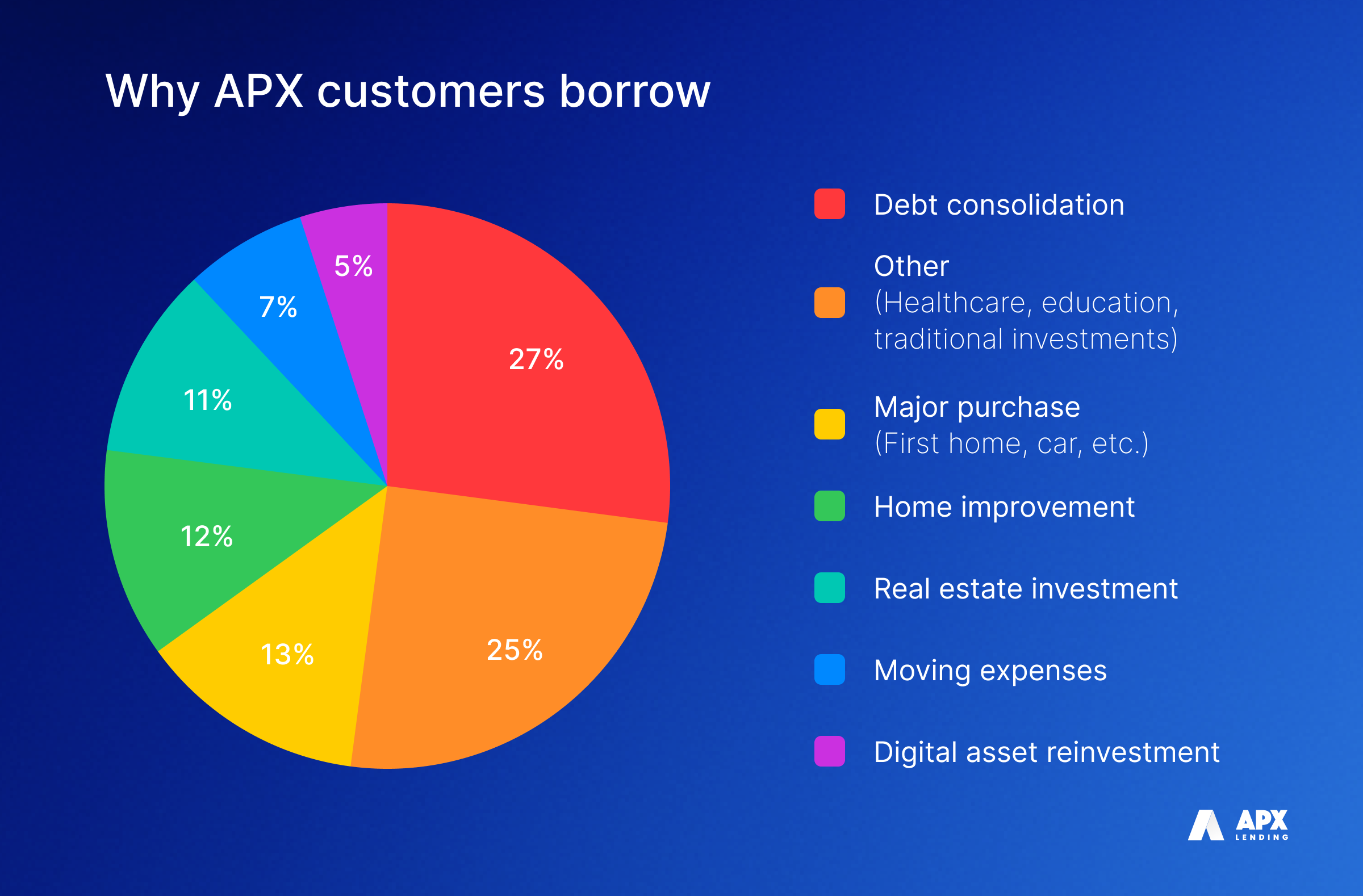APX Lending’s 2025 year-end recap
A look back at APX Lending's first year: CSA authorization, market volatility, regulatory progress in Canada and the U.S., and what it means for the future of crypto-backed lending.

You built your crypto stack for a reason: long-term upside. But what happens when you need liquidity right now?
A lot of investors assume their only option is to sell. But selling triggers tax, reduces your exposure, and can leave you regretting the exit if the market rebounds. Borrowing gives you another path: unlock cash without giving up your position.
This guide breaks down, in plain language:
Let’s dive in.
Across both Canada and the United States, regulators treat crypto as property, not currency. That means selling, swapping, or spending crypto creates a taxable event.
Under the Canada Revenue Agency (CRA):
Example
You buy 1 BTC at $140,000 CAD and later sell at $190,000 CAD.
The IRS also treats crypto as property.
Example
Buy 1 BTC for $100,000 USD → sell at $170,000 USD.
Bottom line:
Selling gives you liquidity, but it also locks in tax and removes your upside entirely.
Instead of selling your BTC or ETH, you can post it as collateral and borrow fiat (or stablecoin) against it. Increasingly, long-term holders use this to stay invested while accessing cash when they need it.
In most jurisdictions, no.
A loan backed by crypto is not considered a sale, so you generally don’t trigger capital gains when the loan originates.
However:
Many APX customers borrow for:

Borrowing is especially compelling when:
If you want the low-risk version of crypto borrowing, this is it. But don't take our word for it.
See what the Canadian Securities Administrators have to say.
Selling makes more sense if:
There’s nothing wrong with taking profit if you have a thesis behind it.
If your goal is to unlock cash today without giving up your crypto’s future upside, borrowing against your holdings can be a smart strategy, especially when done through a regulated, transparent lender.
If you’re ready to de-risk or exit positions, selling may be the better choice.
Whatever you choose, custody, compliance, and clarity matter. APX Lending is designed to give Canadian and U.S. investors a safe, regulated way to borrow against their crypto without taking on platform risk.
Ready to see how borrowing fits into your portfolio?
APX Lending is a crypto-backed lender operating in the US, Canada, and globally. APX Lending does not offer financial or tax advice. We strongly encourage you to consult with a certified financial or tax professional for guidance on any related inquiries you may have.
You built your crypto stack for a reason: long-term upside. But what happens when you need liquidity right now?
A lot of investors assume their only option is to sell. But selling triggers tax, reduces your exposure, and can leave you regretting the exit if the market rebounds. Borrowing gives you another path: unlock cash without giving up your position.
This guide breaks down, in plain language:
Let’s dive in.
Across both Canada and the United States, regulators treat crypto as property, not currency. That means selling, swapping, or spending crypto creates a taxable event.
Under the Canada Revenue Agency (CRA):
Example
You buy 1 BTC at $140,000 CAD and later sell at $190,000 CAD.
The IRS also treats crypto as property.
Example
Buy 1 BTC for $100,000 USD → sell at $170,000 USD.
Bottom line:
Selling gives you liquidity, but it also locks in tax and removes your upside entirely.
Instead of selling your BTC or ETH, you can post it as collateral and borrow fiat (or stablecoin) against it. Increasingly, long-term holders use this to stay invested while accessing cash when they need it.
In most jurisdictions, no.
A loan backed by crypto is not considered a sale, so you generally don’t trigger capital gains when the loan originates.
However:
Many APX customers borrow for:

Borrowing is especially compelling when:
If you want the low-risk version of crypto borrowing, this is it. But don't take our word for it.
See what the Canadian Securities Administrators have to say.
Selling makes more sense if:
There’s nothing wrong with taking profit if you have a thesis behind it.
If your goal is to unlock cash today without giving up your crypto’s future upside, borrowing against your holdings can be a smart strategy, especially when done through a regulated, transparent lender.
If you’re ready to de-risk or exit positions, selling may be the better choice.
Whatever you choose, custody, compliance, and clarity matter. APX Lending is designed to give Canadian and U.S. investors a safe, regulated way to borrow against their crypto without taking on platform risk.
Ready to see how borrowing fits into your portfolio?
APX Lending is a crypto-backed lender operating in the US, Canada, and globally. APX Lending does not offer financial or tax advice. We strongly encourage you to consult with a certified financial or tax professional for guidance on any related inquiries you may have.